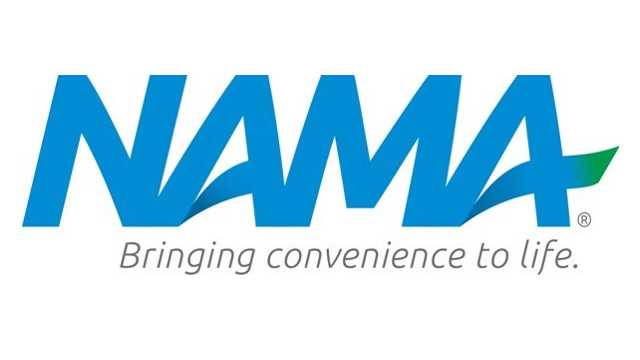ARLINGTON, Va., USA – The National Automatic Merchandising Association (NAMA) will host over 100 convenience service operators, suppliers and others in Washington, DC this week, visiting Capitol Hill Wednesday, July 19, as part of the 2022 NAMA Fly-In & Advocacy Summit. NAMA, which spearheads a coalition of more than 100 business groups and nonprofits working to reinstate the Employee Retention Tax Credit (ERTC) for fourth quarter of 2021, will continue to press Congress for passage of the Employee Retention Tax Credit Reinstatement Act, or ERTCRA (H.R. 6161/ S. 3625).
“The convenience services industry is resilient, but it is hard to imagine a more detrimental scenario than the one Congress created by promising a tax credit and then reneging just as inflation and supply chain disruptions were worsening,” said Carla Balakgie, FASAE, CAE, president & CEO of NAMA. “It is encouraging that more than 110 members of Congress have now signed on as cosponsors of the ERTCRA, effectively pledging their support for the fix, but their support is not a fix. NAMA urges Congress to pass the ERTCRA, restoring access to the promised tax credit for the fourth quarter of 2021.”
The ERTCRA was introduced in December 2021 as a direct result of meetings during the November 2021 NAMA Fly-In & Advocacy Summit. The legislation would reinstate tax relief previously set aside by Congress to offset a small portion of employee wages in the fourth quarter of 2021 — an estimated $193 million for the convenience services industry. Congress cut ERTC funds during its Infrastructure Investment and Jobs Act negotiations.
Beyond ERTCRA
In addition to urging passage of the ERTCRA, the NAMA group will brief members of Congress on the $31 billion industry’s capabilities and initiatives to help solve certain societal problems, pointing to barriers that prevent or substantially imperil its action. These issues include addressing food and nutrition insecurity and phasing out hydrofluorocarbon (HFC) refrigerants.
NAMA on addressing Food and Nutrition Insecurity
As schools and other institutions shuttered during the pandemic, the convenience services industry demonstrated its ability to be part of a solution addressing food and nutrition insecurity. This industry pivoted to fill the gap in food access by packaging and delivering meals to homes.
Although well-equipped to service food deserts through its supply chain, commissary and unique “last foot” distribution network, the convenience services industry remains cut off from acceptance of Supplemental Nutrition Assistance Program (SNAP) benefits as a form of payment.
NAMA will urge Congress to expand the businesses where Supplemental Nutrition Assistance Program (SNAP) benefits may be used to encompass convenience services.
Phasing Out Hydrofluorocarbon (HFC) Refrigerants
A collaboration between the U.S. Department of Energy and vending machine manufacturers now has the convenience services industry in position to be one of the first to complete a mandated phase-out of HFCs. Working toward a viable, business-tenable and sustainable alternative to high global warming potential (GWP) refrigerants, these partners have determined that R-290, or propane, is the best solution. It carries a GWP rating of 0.072 for 20 years and 0.02 for 100 years.
The cost to replace the U.S. HFC vending machine fleet is estimated to average more than $1 million per company.
NAMA will urge Congress to provide an industry-specific tax credit supporting the swift transition to energy-efficient R-290 vending equipment.
NAMA: Deterring Catalytic Converter Thefts
Finally, NAMA also will ask legislators to act against the rising tide of catalytic converter thefts.
As the price of palladium has risen on the precious metals market, catalytic converter thefts have been on the rise across the country. These thefts are costing businesses millions of dollars, including in the convenience services industry.
Crucial to preventing these thefts is the Preventing Auto Recycling Theft ACT (HR. 6394), a bipartisan bill to deter theft by imposing harsher penalties and by making it more difficult for thieves to recycle stolen parts.
NAMA will urge members of Congress to cosponsor / introduce the PARTS Act.


















